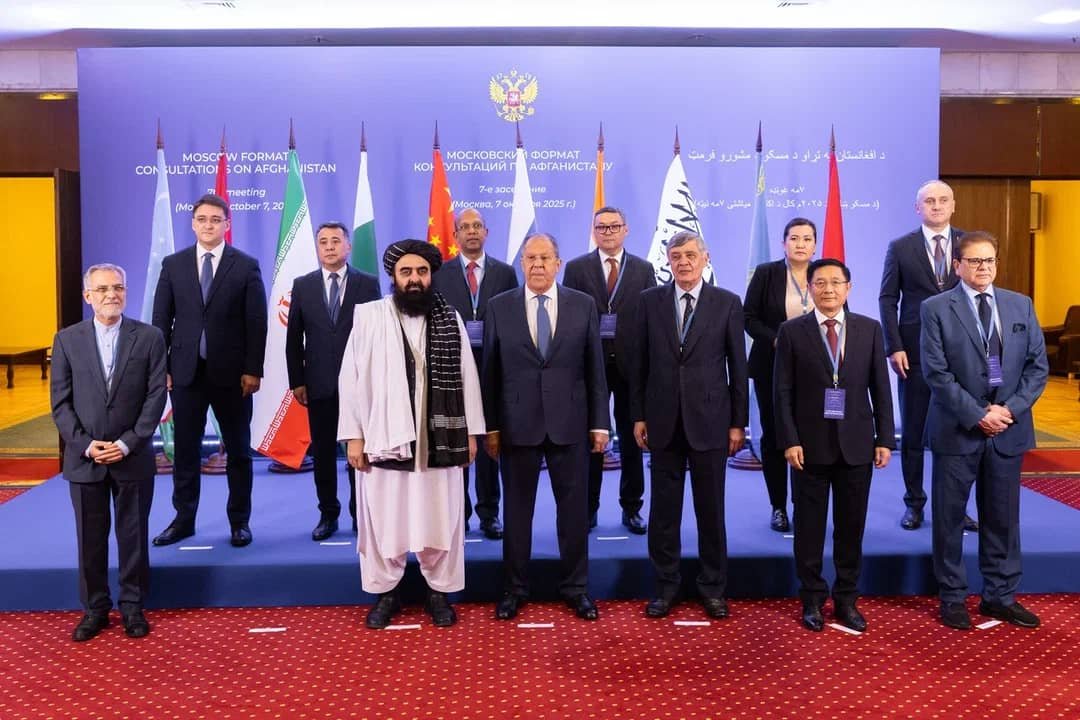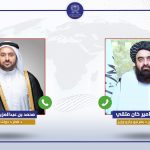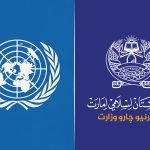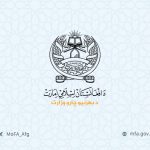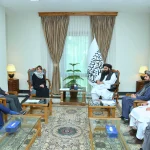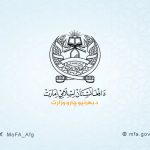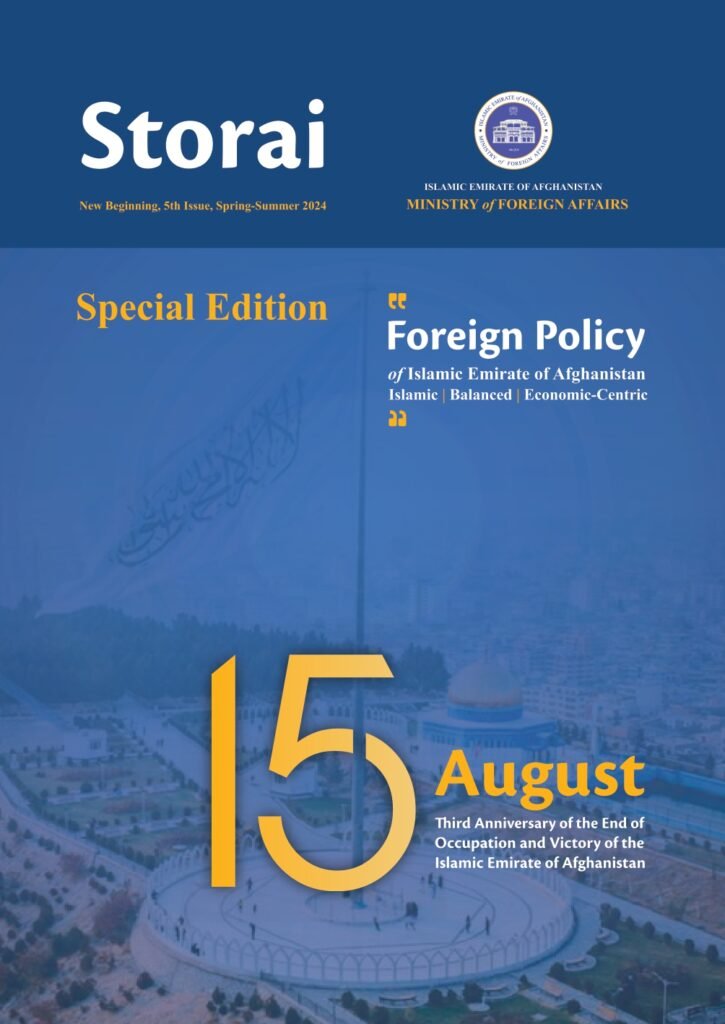Mr. Sergey Lavrov, Minister of Foreign Affairs of the Russian Federation, Distinguished representatives of the member states and guest countries of the 7th Moscow Format meeting,
Ladies and Gentlemen,
Good morning!
At the outset, I express my gratitude to the Government of the Russian Federation for inviting Afghanistan, for the first time, as a member of the Moscow Format. I also extend special thanks to the Government of the Russian Federation, particularly to Foreign Minister Sergey Lavrov, for their gracious hospitality and warm welcome.
I take this opportunity to commend the Russian Federation for its courageous step in recognizing the Islamic Emirate of Afghanistan, a move that has paved the way for unprecedented practical cooperation between us.
As you are aware, our last meeting in the Moscow Format took place on October 4, 2024. Since then, significant changes have occurred in the region and the world. Fortunately, the relations between Afghanistan and the region have grown stronger and are moving toward greater stability. This reflects the international community’s improved understanding and goodwill toward Afghanistan.
Honorable participants,
We gather at a time when waves of change and transformation are sweeping across the region and the world. For me, the most notable aspect is that, during such times, the relations between our countries are advancing toward greater trust and confidence. Today’s gathering is a clear testament to this progress.
Over the past four years, the Islamic Emirate of Afghanistan has achieved unprecedented progress in security, foreign policy, and the economy—achievements that the international community, particularly the representatives of member states here, should not overlook.
With the establishment of the Islamic Emirate, we inherited significant security challenges, including Daesh, drug trafficking mafias, arms smuggling, and other issues that had isolated Afghanistan from the region and the world. Today, these challenges have been effectively managed. Afghanistan has transitioned from a source of security concerns to a partner in regional stability and an opportunity for economic progress.
Honorable participants,
I would like to draw your particular attention to the issue of security in Afghanistan. It must be clarified that the security challenges in our region did not emerge with the advent of the Islamic Emirate. The security issues in this region date back over four decades. The foreign presence in Afghanistan over the past twenty years, coupled with the cooperation of some regional countries with this illegitimate presence, was a primary cause of security challenges. Fortunately, over the past four years, all factors contributing to insecurity in Afghanistan have been eliminated. We believe this positive progress should be supported and further strengthened to prevent past mistakes from recurring. Our region must not again become a victim of miscalculations or flawed policies.
You may be aware that a joint statement by several countries recently raised concerns about the presence of various groups in Afghanistan. I wish to state clearly that no group exists in Afghanistan that uses our territory to create problems for other countries. I urge the authorities of countries affected by insecurity to take responsibility for addressing their own challenges. It is with great regret that I note some parties actively attempt to portray Afghanistan as a threat to the region, instead of acknowledging the security achieved over the past four years. I strongly condemn these efforts and call on all countries to adopt an independent stance based on ground realities and their own information regarding Afghanistan. This will enable us to develop practical and effective approaches to address regional challenges.
Our intelligence indicates that Daesh and other groups have recently established training and equipping centers in other countries in the region, which is a matter of concern for the Afghan government. Additionally, following the ban on poppy cultivation in Afghanistan, the cultivation, production, and trafficking of narcotics outside Afghanistan have increased significantly. The regional countries should independently investigate and address these issues.
Honorable participants,
On the economic front, I am pleased to announce that the Islamic Emirate of Afghanistan has, for the first time, launched a five-year national development strategy. Its implementation will further strengthen the foundations of our economy through the development of the productive sector, investment, exports, and infrastructure.
Over the past four years, our journey toward economic sustainability has yielded significant achievements. Allow me to highlight some key points:
1.Gross Domestic Product (GDP): At the outset of the Islamic Emirate, Afghanistan’s GDP was approximately $14.4 billion. It has now risen to $17.4 billion, reflecting an annual economic growth rate of nearly 3%. This demonstrates the strengthening of the productive sector, domestic markets, and improved revenue system management.
2.Export Growth: Afghanistan’s exports have increased from $700 million annually to $2 billion over the past four years. Afghan products are now exported to 70 countries, a clear indication of expanded access to global markets and increased foreign revenue.
3.Increase in Imports and Purchasing Power: Imports have risen from $6.5 billion annually in 2020 to $12 billion, reflecting stronger domestic consumption and purchasing power, which are key indicators of economic activity and improved living standards.
4.Budgetary Financial Independence: The Islamic Emirate now funds all government expenditures from domestic revenues. In the past, $4–6 billion in foreign aid was part of Afghanistan’s annual budget. We have taken significant steps toward financial independence, fully funding both regular and development budgets from domestic revenues.
5.Foreign Investment and Commitments: Over the past four years, we have secured investment commitments worth $21 billion, of which $7 billion has already been realized. These investments in infrastructure, energy, mining, and productive projects are driving sustainable growth.
6.Industrial Production Expansion: In 2020, approximately 3,500 industrial factories were operational in Afghanistan. Today, this number exceeds 6,000, indicating the growth of the productive sector, increased domestic production, and the creation of employment opportunities.
These achievements are led by our efforts exerted toward the economic stability and progress of Afghanistan over the past four years. They demonstrate that Afghanistan is better positioned than ever for investment and development. However, regrettably, economic sanctions imposed by certain countries and international organizations have hindered further economic growth. Approximately $9 billion of Afghanistan’s assets remain frozen, and sanctions have impacted our ability to achieve greater economic growth and engage in free competition. I urge you to fulfill your responsibility in advocating for the release of Afghanistan’s assets and the lifting of sanctions within the international community.
Ladies and gentlemen,
Four years ago, we began engaging with the world from scratch. We conveyed to all countries our desire to make Afghanistan an integral part of the international community through an economy-centered and balanced policy. Regional countries have responded positively to our message, resulting in close and friendly relations with all regional states today. Other countries are also nearing understanding that political engagement is the only viable path for relations with Afghanistan.
I reiterate that the Islamic Emirate of Afghanistan seeks positive relations not only with regional countries but with all nations of the world, based on mutual respect and consideration of our values. We aim to work on common interests with all countries and engage in dialogue to address differences. We believe that negotiations, meetings, and positive engagement are the only path to building trust and resolving issues.
Honorable participants,
Seizing this opportunity, I would like to present a number of specific proposals:
- I urge you to view the Afghan issue from an independent and objective perspective, based on ground realities. The efforts of the Afghan government in ensuring regional security, economic stability, and political progress should not be overlooked.
- The recognition of the Islamic Emirate by the Russian Federation was a positive step. We hope that other countries will use this and similar platforms to take positive steps toward pragmatic cooperation with Afghanistan.
- The Islamic Emirate is firmly determined to make Afghanistan a hub for regional connectivity and economic progress. Now is the time to prioritize economic engagement over rehashing the problems.
- In the fight against narcotics, we must establish coordinated regional cooperation to eradicate this unfortunate phenomenon from all countries in the region. The Islamic Emirate of Afghanistan stands ready to provide every possible form of cooperation thereof.
To conclude, I find it important to address the plight of the oppressed people of Palestine. It is with great sorrow that I note the failure of the current global order to prevent the ongoing atrocities against the innocent children, women, and elderly of Gaza. This situation has raised serious questions about the credibility of international institutions like the United Nations and the philosophy of human rights.
I hope that the ongoing progress in negotiations will lead to tangible outcomes, ensuring that the Palestinian people can freely enjoy the right to self-determination and live in peace. I call on all regional and global actors capable of halting the oppression and genocide in Gaza to take practical measures to fulfill their responsibilities in this critical matter.
Thank you for your attention.

